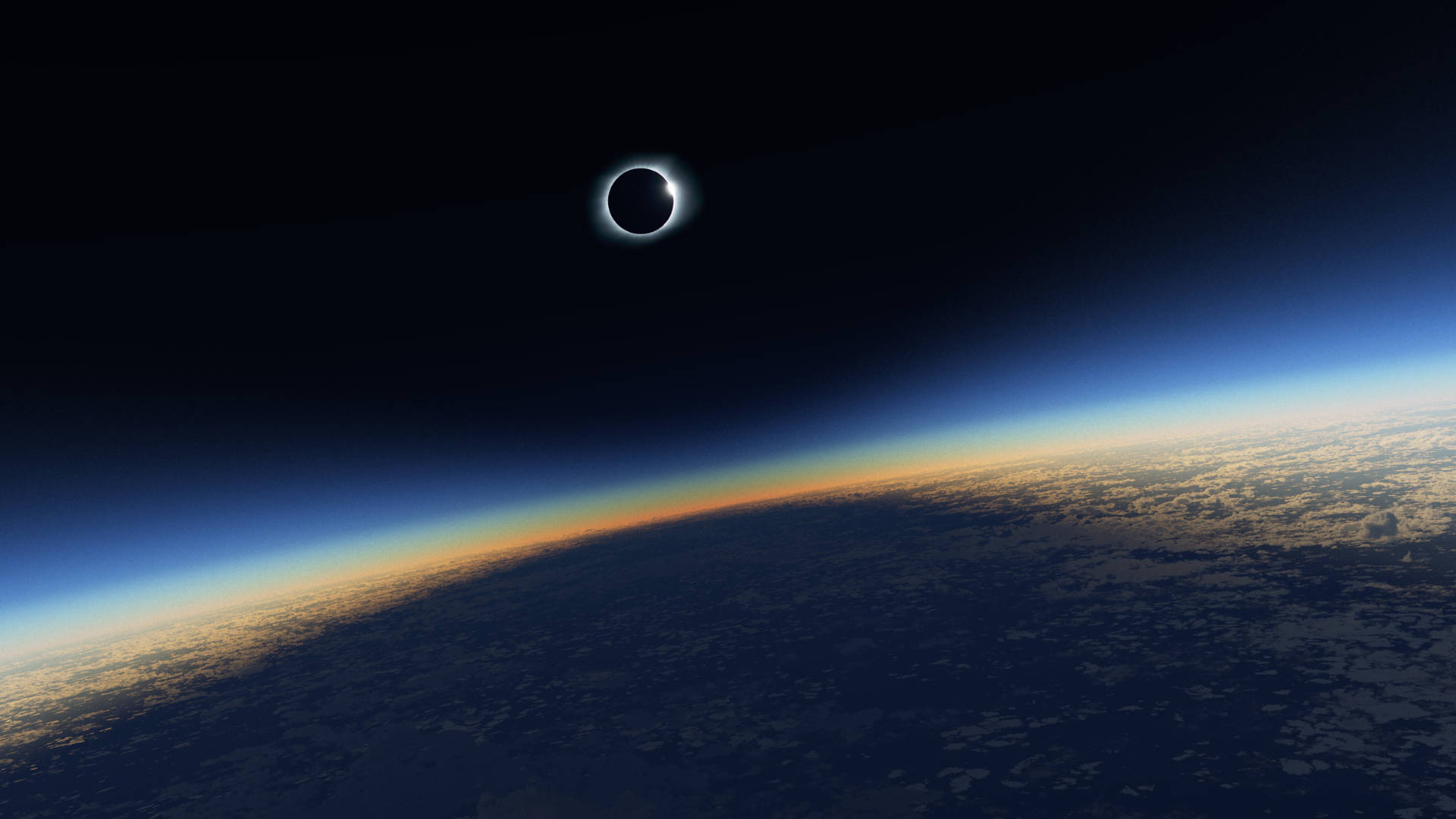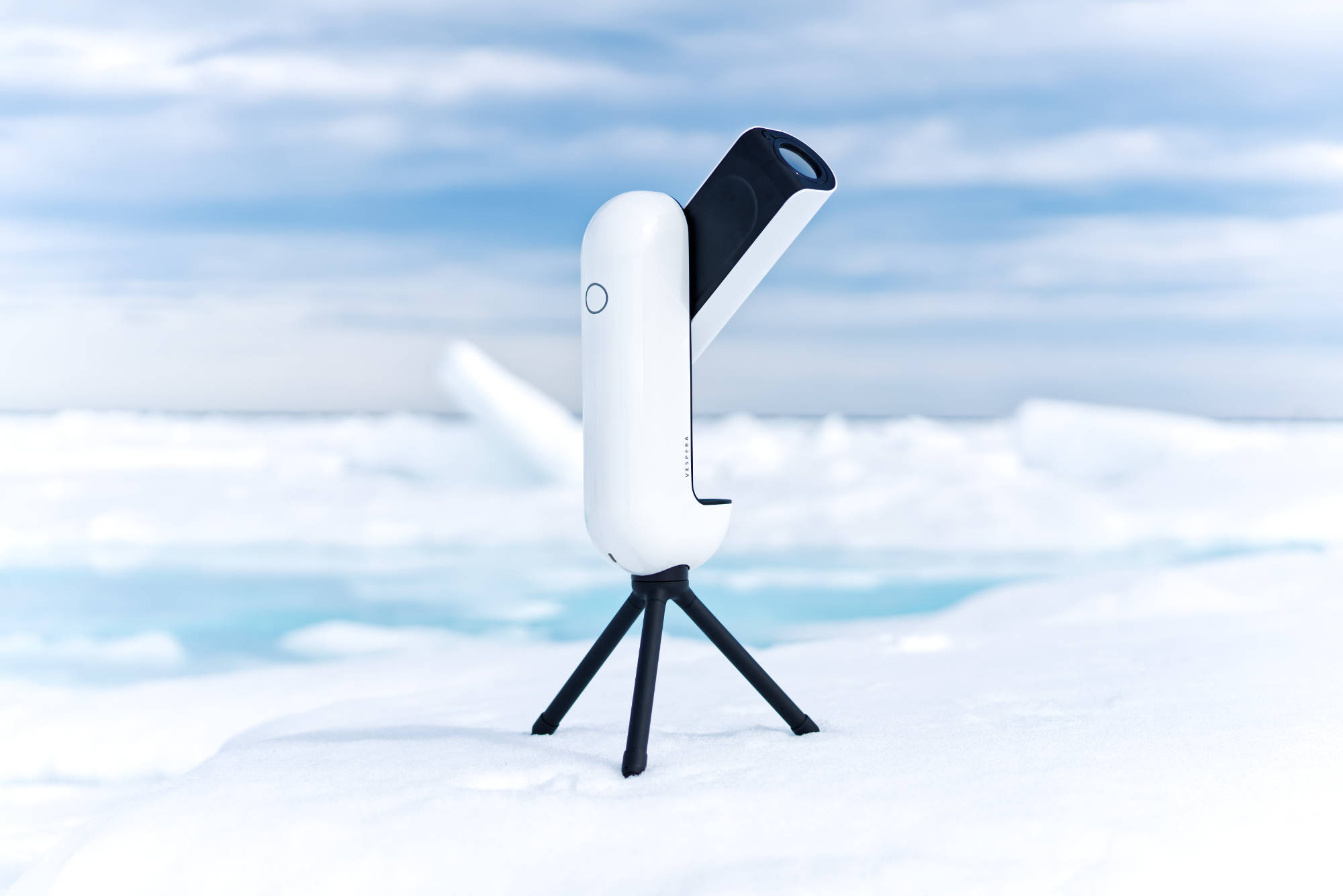At the end of 2021, I boarded an ice-breaker class vessel bound for Antarctica. I hoped to witness the exceptional spectacle of a total solar eclipse from the pack ice of the Weddell Sea. But things did not go as planned. The sea ice was too far south, and the weather was not on my side either.
We have to accept that some things are out of our reach no matter how hard we try. We can't control everything and bend nature to our wishes. But there was still the Antarctic, and I had the privilege to approach this continent which represents a grail for any explorer.

The total solar eclipse
When Earth, the moon and the Sun are perfectly aligned the moon casts its shadow somewhere on our planet. A darkness of a few tens of seconds occurs. It happens rarely and you have to be in the right place to witness it.
The image above show what a total solar eclipse would look like seeing from the stratosphère (modeling and rendering by "adventurer of the third planet").
The sun is 400 times bigger than the moon. But it is also 400 times farther to Earth. That's why we can get perfect total solar eclipses.
The next total solar eclipses will occur on April 20, 2023 (Australia, Indonesia), April 8, 2024 (United States, Mexico) and August 12, 2026 (Spain, Iceland)

Antarctica
Antarctica doesn't belong to anyone. There's been a treaty that has been signed by more than 40 countries. This treaty clam that Antarctica is open to anyone who wants to come. And you can not forbid someone to go. Yet approaching it represent a real challenge not within reach of the first comer.
The Antarctic continent is the most extreme place on the planet. The continental part is considered as the biggest desert of the planet, it receives less precipitations than the Sahara. It is also the place where the lowest temperatures have been recorded: -98°C.
There are no permanent inhabitants in Antarctica. Only scientific installations are built their.
In Antarctica all mammals are marine mammals . There is no land mammals . Everything depends on the sea so that there's no wildlife at all on the inner continent.
